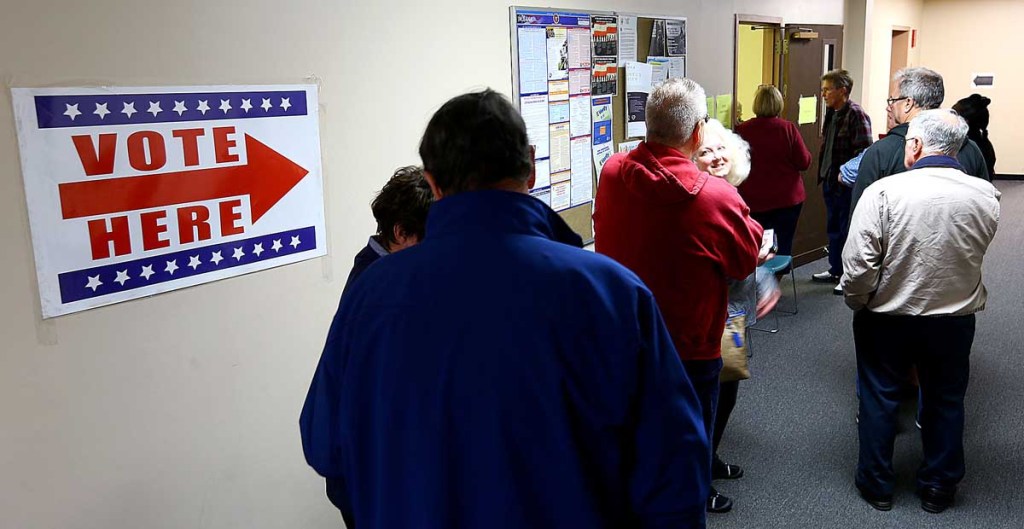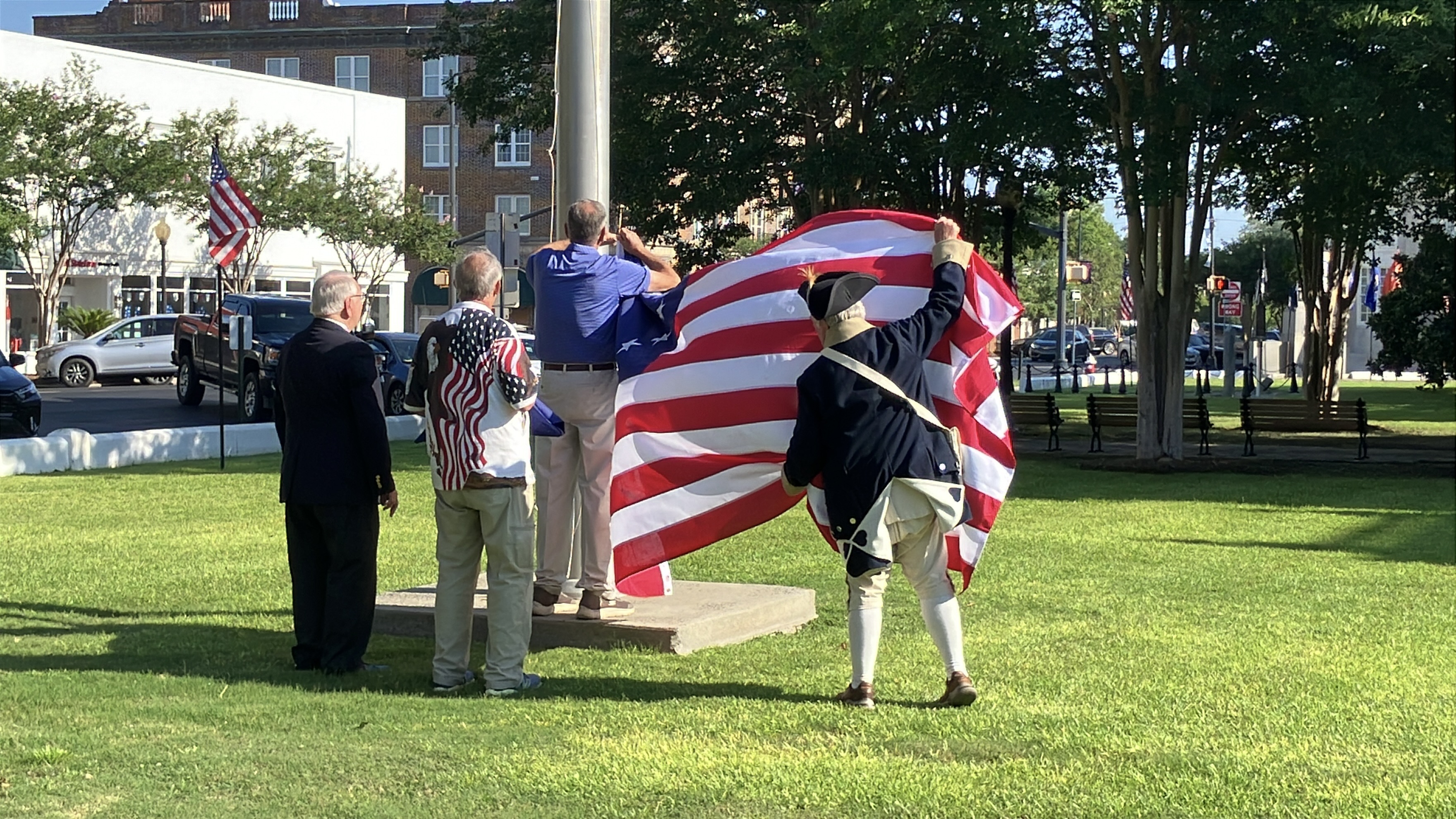President Trump seeks ‘major investigation’ into unsupported claims of voter fraud
Published 12:00 pm Wednesday, January 25, 2017

- People line up outside room 101 in the Howard County, Indiana, Government building for early voting on Oct. 25, 2016 in this file photo.
WASHINGTON – President Donald Trump tweeted Wednesday morning that he plans to ask “for a major investigation” into claimed voter fraud following his unfounded belief that he lost the popular vote in November’s election because millions of illegal votes were cast.
The White House has yet to provide details, but Trump said in back-to-back tweets that the investigation would cover “those registered to vote in two states, those who are illegal” and “those registered to vote who are dead (and many for a long time).” Trump used all capitals — VOTER FRAUD — for emphasis.
“Depending on results,” Trump tweeted, “we will strengthen up voting procedures!”
Trump continues to face scrutiny, along with some mockery, for insisting during a private reception with congressional leaders on Monday that there were between 3 million and 5 million ballots illegally cast in the election, allowing his Democratic rival Hillary Clinton to win the popular vote by more than 2.8 million votes, although she lost the electoral vote to Trump. The president and his aides have yet to provide any verifiable facts to back up his claim, and analyses of the election found virtually no confirmed cases of voter fraud, let alone millions.
The National Association of Secretaries of State, which represents many of the country’s state elections officials, said in a statement on Tuesday: “We are not aware of any evidence that supports the voter fraud claims made by President Trump, but we are open to learning more about the administration’s concerns.”
Given that studies have shown that cases of in-person voter fraud are exceptionally rare, voting rights activists and others are worried that Trump’s unfounded comments could lead to more voter ID laws that they say disenfranchise poor or minority voters, such as the one in North Carolina that was overturned by the Supreme Court last summer.
A Trump adviser told The Washington Post on Wednesday that Trump has been stewing about his popular vote count for weeks and insisting to friends that Clinton benefited from illegal votes in Democratic-leaning states like California. He has mentioned to several of them his interest in launching an investigation into possible voter fraud, said the adviser, who was not authorized to speak publicly.
The adviser went on to frame Wednesday’s tweets as a deeply personal move by Trump reflective of his thinking on the election, and did not have details on whether congressional leaders had been briefed on Trump’s desire to have an investigation, although the adviser said Trump did tell them Monday about his broader concerns regarding the election count during a reception at the White House.
At the Tuesday briefing, White House press secretary Sean Spicer defended Trump’s “long-standing belief” and pointed to a study that did not contain the conclusion he said it did. Spicer said there were no plans for an investigation, but left the option open.
“Maybe we will,” Spicer said. “We’ll see where we go from here, but right now the focus of the president has is on putting Americans back to work.”
When pressed again by reports on the possibility of an investigation, Spicer seemed to downplay the prospect, saying “anything is possible.”
Such an investigation would likely be led by the president’s attorney general at the Justice Department. Trump’s pick for the position, Sen. Jeff Sessions, R-Ala., has asserted in the past that voter fraud exists, but he has distanced himself from Trump’s claim of millions of fraudulent votes.
“I don’t know what the president-elect meant or was thinking when he made that comment or what facts he may have had to justify his statement,” Sessions said at his confirmation hearing earlier this month. “I would just say that every election needs to be managed closely and we need to ensure that there is integrity in it. And I do believe we regularly have fraudulent activities occur during election cycles.”
Sessions, who has yet to be confirmed, said he had not talked to Trump “about that in any depth or particularly since the election.” A spokeswoman for Sessions declined to comment beyond what the senator said at his confirmation hearing. Sessions has been questioned on his handling of a voter fraud case brought against black civil rights activists in Alabama in the 1980s, when he was a U.S. attorney.
The Washington Post’s John Wagner, Robert Costa, Matt Zapotosky and Sari Horwitz contributed to this report.





